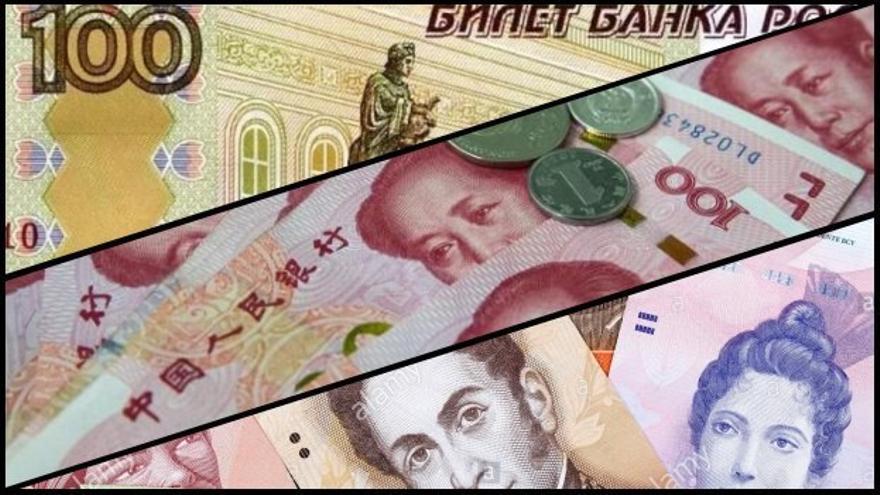
![]() 14ymedio, July 24, 2020 – The currency of the Cuban Government’s main political allies are excluded from the hard currency that can be deposited in bank accounts whose debit cards work in the State stores that sell food and cleaning products in freely convertible money (MLC). The State bank branches aren’t accepting deposits of Chinese yen, Russian rubles or Venezuelan bolivars in these accounts, as confirmed by 14ymedio.
14ymedio, July 24, 2020 – The currency of the Cuban Government’s main political allies are excluded from the hard currency that can be deposited in bank accounts whose debit cards work in the State stores that sell food and cleaning products in freely convertible money (MLC). The State bank branches aren’t accepting deposits of Chinese yen, Russian rubles or Venezuelan bolivars in these accounts, as confirmed by 14ymedio.
“No, we’re not accepting these currencies,” is the categorical response of an employee at the Playa branch of the Banco Metropolitano. This newspaper received identical responses from a bank office in Old Havana, another in Vedado and a fourth in Central Havana. In each case, the workers were clear: “You can’t deposit cash in rubles, yen or bolivars in hard currency accounts.”
The steps to obtain the debit card start with opening a bank account in MLC, but there’s no indispensable requisite for depositing funds. “The client can come, get his card and then after receiving it begin to deposit. Yes, of course, the deposit has to be in currencies authorized by the Central Bank,” clarifies an employee of the branch on the ground floor of the Ministry of Transport.
On the list appear U.S. dollars, euros, pounds sterling, Canadian dollars, Swiss francs, Mexican pesos, Danish krone, Norwegian krone, Swedish krona and Japanese yen, but notable by their absence are the currencies of the countries with a political rhetoric more sympathetic to Havana: Venezuela, China and Russia.
“In January, I had some Chinese clients stay for three weeks, and before leaving they gave me some yen, so I got my hopes up about depositing them and buying some soap and toothpaste that were missing from the normal stores, but they told me that I needed hard currency,” Rosa María, owner of a rental home in Nuevo Vedado, told 14ymedio.
Something similar happened to a young man from the municipality of Cerro, who still had a few rubles left from his trip to Moscow last year. “I could use them to take a taxi from the airport in case I returned, but since I didn’t go back I now wanted to deposit them to get some things for the baby girl my wife and I just had.
In the bank branch at Línea and M in Vedado, the employee interrupted the young man’s question. “When I told him that rubles were worthless he looked disgusted and told me, ‘nothing of the kind, they were currencies of Canada, the U.S. and Europe, countries with strong money’. The young man left although he could have started the application for a debit card in MLC. ‘It will be empty a long time because I don’t have divisas’.”
In Venezuela, there are thousands of Cubans on official missions, and thousands of Cubans travel to Russia each year because they don’t need a visa to go there. As for China, tourism to Cuba has grown considerably these last years, so the possibility of getting money from these three countries is much easier than getting euros or British pounds.
On July 16, Miguel Díaz-Canel confirmed what this newspaper had already said about the opening of shops offering basic products in foreign money, exclusively through debit cards associated with national bank accounts, although the shops in Cuban pesos and convertibles would keep functioning in parallel.
These shops opened last Monday, and a wave of indignation was raised among those who lamented that the products which were scarce in the Cuban peso market now were abundant in these shops with prices in hard currency.
Translated by Regina Anavy
_______________
COLLABORATE WITH OUR WORK: The 14ymedio team is committed to practicing serious journalism that reflects Cuba’s reality in all its depth. Thank you for joining us on this long journey. We invite you to continue supporting us by becoming a member of 14ymedio now. Together we can continue transforming journalism in Cuba.
